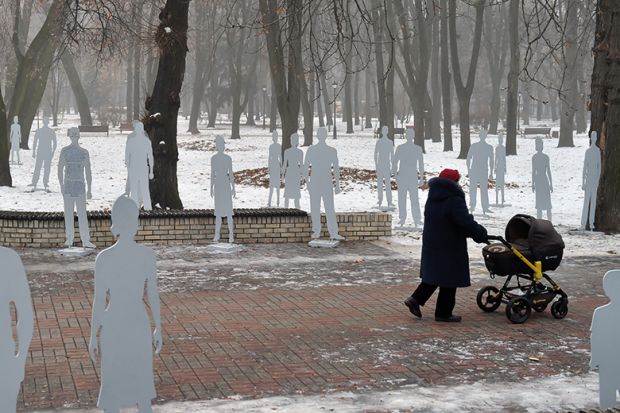Millions of hours of unpaid extracurricular work undertaken by university staff is going “under the radar”, according to a new report that highlights the hidden multibillion-pound value of public engagement and knowledge exchange in UK institutions.
In a series of online surveys, a sample of 1,093 university staff from three different universities were asked to estimate the average amount of time, if any, that they spent in a typical year on a range of voluntary, unpaid activities relating to their job.
Taken across the whole higher education staff population, pro-bono work to an estimated value of £3.2 billion took place in the year 2015-16 alone, according to a resulting paper, An Elephant in the Room, published by Viewforth Consulting.
This equates to 40 million hours spent on activities including public presentations, participation in science events, charity and social enterprise work – or 24,493 full-time jobs, researchers concluded.
The figures come at a time when university staff are reported to be facing an uphill struggle to achieve a good work-life balance, with increasing workloads not matching up to salary expectations.
A major global survey of university staff undertaken by Times Higher Education between October and November last year reveals that about two-fifths of all university staff believe that their working hours have increased in the past three years, with many having considered leaving the higher education sector as a result.
Speaking to THE about the new report, Viewforth director Ursula Kelly said that the findings were not a reflection on staff terms and conditions, however, and rather should be seen as a celebration of the goodwill seen in university staff across the country.
“People are not being compelled to do these activities,” she said. “A lot of universities themselves say this is part of their mission, that this is about the public good.”
Nonetheless, without staff members’ willingness to volunteer after hours, universities would not be able to function in the same way, she acknowledged.
“There are [also] so many things that staff do on a voluntary basis for the government, for instance acting as advisers on consultation panels. They don’t get paid for any of this by the government either, but it is relied upon.”
Part of the issue, Ms Kelly said, was that “people seem to have a wish to use their expertise for the public good”. “It shouldn’t actually be about ‘how can we pay people for all of this’ because people are doing this due to their own feeling.”
The research comes after Jo Johnson, the former universities minister, told universities that they “must do more” to engage with industry, drive up productivity and ultimately generate income for the UK.
With plans for a knowledge exchange framework to measure institutions’ activity in this area, Viewforth says that “full cognisance” must be given to the pre-existing contribution from universities and their staff, “albeit under-recognised and hitherto unquantified”.
Any evaluation framework that rewards “only a visible subset of…activities” – for instance, by measuring patents and licences acquired – runs the risk that “staff will simply abandon their voluntary work to concentrate on ‘recognised activities’”, the report says.
“To sustain this volume of knowledge exchange activity on a non-voluntary basis, someone is going to have to find an additional £3.2 billion to pay for it,” the report’s authors say.





